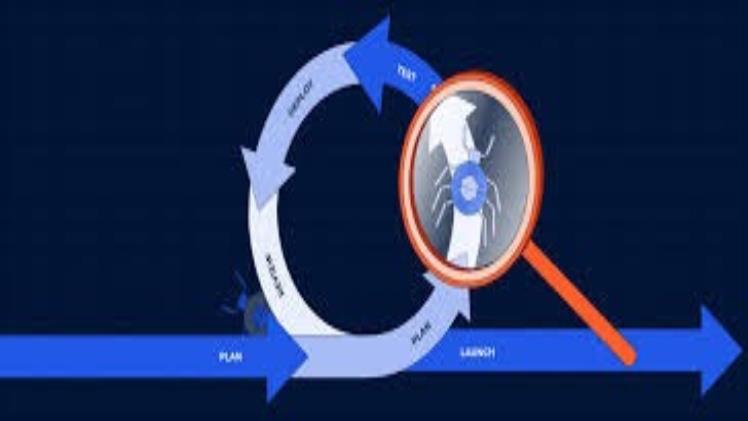
In today’s fast-paced digital landscape, the demand for rapid development cycles without compromising quality has never been greater. Agile methodologies, which prioritize iterative progress and collaboration, have transformed how software development teams operate. However, as businesses strive for speed, the imperative for rigorous Quality Assurance (QA) processes becomes increasingly vital. Agile Quality Assurance Services bridge this gap by integrating testing into every stage of the development lifecycle, ensuring that quality is not an afterthought but a core component of the process. These services encompass a range of practices designed to enhance both the speed and accuracy of software delivery, from automated testing to continuous integration and feedback loops. By adopting Agile QA methodologies, organizations can swiftly identify and rectify defects, respond to changing requirements, and ultimately deliver a product that meets both user expectations and business objectives. This article explores the key components of Agile Quality Assurance Services, highlighting their role in improving efficiency, reducing time-to-market, and fostering a culture of continuous improvement. Emphasizing collaboration between development and QA teams, we will examine how these practices not only enhance product quality but also drive innovation in a competitive marketplace.
Benefits of Agile Quality Assurance Services
Agile quality assurance services significantly enhance the development process by promoting collaboration among cross-functional teams, which leads to improved communication and faster feedback loops. By integrating quality assurance into each stage of the development cycle, teams can identify and address potential issues earlier, reducing the risk of major defects that can derail timelines and budgets. This proactive approach not only ensures a higher quality product but also fosters a culture of continuous improvement, where teams can adapt and refine their processes based on real-time insights and user feedback.
Moreover, agile quality assurance services enable organizations to respond swiftly to changing market demands and customer expectations. With a strong emphasis on iterative testing and regular updates, businesses can release new features and enhancements with greater confidence, knowing that quality is maintained throughout the development lifecycle. This agility not only enhances customer satisfaction but also helps in building a competitive edge in an increasingly fast-paced digital landscape. The result is a more resilient development process that supports innovation while ensuring adherence to quality standards.
Key Features of Agile QA Processes
A fundamental characteristic of agile quality assurance services is their focus on early and continuous testing, which allows for immediate validation of requirements and functionalities. This iterative approach ensures that quality checks are not relegated to the end of the development cycle, but are embedded within each sprint, facilitating prompt identification of defects and minimizing the cost of fixes. Additionally, automation plays a crucial role in enhancing efficiency and consistency within the QA process, allowing teams to execute repetitive tests swiftly while freeing up valuable resources for more complex scenarios.
Collaboration and communication are also pivotal in agile quality assurance services, as they promote shared responsibility for quality among all stakeholders involved in the project. Regular stand-up meetings, sprint reviews, and retrospectives provide platforms for team members to discuss challenges, share insights, and align on quality standards. This collective ownership not only accelerates decision-making but also cultivates a culture where quality is prioritized, leading to more innovative solutions and ultimately higher customer satisfaction.
Implementing Agile QA for Development Success
By integrating agile quality assurance services into the development workflow, organizations can enhance their responsiveness to changes and foster a culture of continuous improvement. This integration enables teams to adapt quickly to user feedback and evolving requirements, ensuring that the end product not only meets technical specifications but also aligns with customer expectations. Furthermore, the emphasis on collaboration encourages the development and QA teams to work closely, leading to a more cohesive understanding of project goals and quality benchmarks.
Moreover, the implementation of agile quality assurance services facilitates a proactive approach to risk management. By conducting regular testing and validation throughout the development process, teams can identify potential issues early, reducing the likelihood of costly late-stage fixes or rework. This proactive stance, coupled with an iterative workflow, not only boosts overall product quality but also accelerates time-to-market, enabling organizations to stay competitive in a rapidly evolving landscape.
In conclusion, Agile Quality Assurance services represent a pivotal shift in how organizations approach software development, emphasizing speed without compromising on quality. By integrating testing seamlessly throughout the development lifecycle, teams can identify and address issues early, leading to enhanced accuracy and a more efficient workflow. The iterative nature of Agile allows for continuous feedback and improvement, ensuring that products not only meet but exceed user expectations. As organizations continue to evolve in a fast-paced digital landscape, adopting Agile QA practices will be essential for maintaining a competitive edge and delivering high-quality solutions that resonate with end-users.
